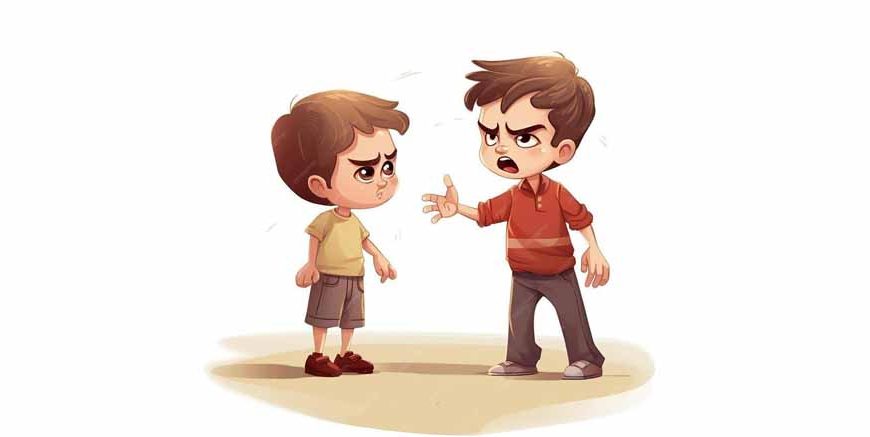Is your little one giving you a hard time? You should really be worried, if they aren’t! The only problem is, when all that ‘defiant’ behaviour goes way outside acceptable norms. Take for instance, a term that you have in all probability heard a lot these days: ADHD.
In common parlance, it is nothing short of being one of the several behavioural disorders in children that are coming to the fore today.
In this article, you will learn all about the most common Behavioural Disorders in children. While perusing the Types of Behavioural Disorders, we will attempt to shed light on the Symptoms of Behavioural Disorders, with a view to helping us diagnose them better. By the end of the article, you will have not only learned ‘What is a Behavioural Disorder’, but rather, garnered an understanding into the ‘Causes of a Behavioural Disorder’, too.
This is when parents shouldn’t be thinking, ‘What has happened to our children these days?’ Rather, they need to understand that these ‘disorders’ have been around since time immemorial. It’s only in today’s day and age, that we are seeing more of them being diagnosed. Come join our team at EuroKids, as we embark on a journey to demystify the ‘stigma’ of behavioural ‘disorders’, and bring some ‘order’ to the ‘chaos.’
Table Of Contents
- 3 Most Common Behavioural Disorders in Children
- Getting to the Root: Causes of a Behavioural Disorder
- Behavioural Disorders: Their Management
3 Most Common Behavioural Disorders in Children
Sometimes, putting a ‘label’ on the issues that confront us, makes things a lot easier.
Presenting the 3 most common Behavioural Disorders in Children, along with the symptoms of each of those Behavioural Disorders:
- Attention Deficit Hyperactivity Disorder (ADHD)
- Inattentive
- Hyperactive-Impulsive
- Combined
- Inattentive ADHD
- Being easily distracted
- Difficulty focusing on tasks like ‘reading’
- Unable to listen to instructions
- Hyperactive-Impulsive ADHD
- The inability to sit in one place for long
- Constantly fidgeting when in one place
- Not able to wait for their turn
- Combined ADHD
- Oppositional Defiant Disorder (ODD)
- Repeatedly refusing to obey rules
- Upsetting others on purpose
- A sense of vindictiveness
- Losing one’s temper easily
- Blaming others for their own wrongdoings
- Blatantly defying authority
- Conduct Disorder
- Lack of empathy for others
- Substance abuse at a tender age
- Bullying others
- Cruelty to animals
- Criminal behaviour, like stealing
- Running away from home
Without a doubt, this Behavioural Disorder seems to be far more rampant in kids, than the other two. But did you know, there are 3 ‘subtypes’ of ADHD?
ADHD Symptoms:
A mix of the symptoms in the earlier ADHD types.
Are you using the words ‘acting out’ all too frequently, when describing the behaviour of your child? Your child might have this type of Behavioural Disorder.
ODD Symptoms:
If you’ve heard parents of other kids calling your child a ‘Bad Kid’, it might just be because they are suffering from this type of Behavioural Disorder.
Conduct Disorder Symptoms:
Causes of a Behavioural Disorder: Getting to the Root
While the causes of Behavioural Disorders are by and large unknown, there are certain ‘risk factors’ that parents might want to look out for, like the following.
- Gender
- Temperament
- La Familia
- Difficulties at Childbirth
At the risk of sounding ‘biassed’, we have to state that boys are far more likely to suffer from Behavioural Disorders, than girls.
If your child is exhibiting temperamental issues from an early age, it’s far more likely that he or she will develop a behavioural disorder in their later years.
Ever heard the term ‘dysfunctional family’? A family characterised by things like domestic violence and poor parenting skills, might just be responsible for behavioural disorders.
Complications in pregnancy might also pose serious risk factors for behavioural disorders.
Behavioural Disorders: Their Management
There are several things you can do to manage your child’s behavioural disorder effectively. Like the following:
- Family Therapy
- Medication
- Personalized Therapy
If there can be Couples’ Therapy, why not Family Therapy? When the members of a family talk to each other, they can help address those ‘touchy’ behavioural issues.
In case your child has a coexisting disorder, like depression, medication might just help make it easier for them.
Note: There is no medication per se, for behavioural disorders of any kind.
Seeking therapy is not merely for adults. When they indulge in therapy, they can get a firmer grip on their emotions.
At EuroKids we believe that taking action is the ‘need of the hour’, when it comes to addressing behavioural issues. We need to remember that our children are going through far more than we can imagine. As always, we must continue to treat them with the utmost patience and love, while getting them all the help that they might need to make their lives fuller and richer.
















